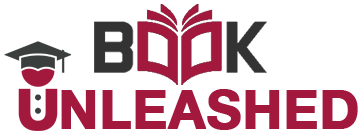Pursuing an early childhood education degree opens a world of fulfilling career opportunities. From nurturing the youngest learners to influencing educational policies, graduates have diverse roles to explore. This article outlines various jobs, occupations, and roles available for individuals armed with an early childhood education degree in Singapore.
Teaching Positions
Graduates with an early childhood education degree in Singapore often find themselves drawn to teaching positions. Teaching in preschools or kindergartens allows educators to directly influence children’s foundational years. These roles are essential for developing young minds, imparting basic knowledge, and fostering social skills.
Besides traditional classroom settings, early childhood teachers can also work in special education. This niche focuses on children with additional needs, offering tailored education plans that help them thrive. This career path requires patience, empathy, and specialised training, often providing a rewarding experience for those passionate about inclusivity in education.
For those inclined towards leadership, roles as lead teachers or head of curriculum provide avenues to influence teaching methods and curricula. These positions often involve mentoring junior teachers and ensuring that educational standards are met, thus enhancing the overall quality of early childhood education.
Administrative and Policy Roles
Graduates are not limited to classroom settings. Administrative and policy roles offer avenues to impact education on a broader scale. Positions in educational administration include roles such as centre managers or principals. These roles involve overseeing daily operations, managing staff, and ensuring the implementation of educational standards.
Engaging in policy-making can be another exciting career path. Working with government bodies or non-governmental organisations allows professionals to influence early childhood education policies and frameworks. This might include developing curriculum guidelines, creating teacher training programmes, or implementing educational reforms. Such roles are vital for shaping the future of early childhood education in Singapore.
Childcare and Development Specialist
A degree in early childhood education can also lead to roles as childcare and development specialists. These professionals work in various settings, including private households, childcare centres, and educational institutions. Their primary responsibility is to ensure the well-being and development of young children.
This role often involves creating and implementing developmentally appropriate activities, monitoring children’s progress, and collaborating with parents to support their children’s growth. Specialists might also guide on behavioural issues and developmental milestones, making this role critical for holistic child development.
Early Childhood Lecturer Jobs
For those interested in academia, early childhood lecturer jobs present an opportunity to educate future teachers. Lecturers in this field are responsible for teaching courses, conducting research, and publishing academic papers. This role requires a deep understanding of early childhood education theories and practices, as well as a passion for mentorship.
Working as a lecturer involves developing course materials, delivering lectures, and assessing student performance. These professionals play a crucial role in preparing the next generation of early childhood educators. They also often engage in continuous professional development, ensuring they stay updated with the latest educational trends and research.
Educational Consultants

Becoming an educational consultant is another viable path for graduates. Consultants work with schools, childcare centres, and educational organisations to improve their services. This role involves evaluating existing programmes, providing recommendations for improvement, and helping implement new strategies.
Educational consultants might specialise in areas such as curriculum development, teacher training, or school management. Their expertise helps institutions enhance their educational practices, ensuring better outcomes for children. This role requires a blend of educational knowledge and practical experience, making it ideal for those with a robust background in early childhood education.
Research and Development
Research and development roles are ideal for those passionate about advancing early childhood education through evidence-based practices. Researchers in this field conduct studies on various aspects of early childhood education, such as learning methodologies, developmental psychology, and educational technologies.
Their findings contribute to improving educational practices and policies. Working in research can involve collaborating with universities, research institutions, or governmental agencies. This career path is suited for individuals who enjoy academic inquiry and are dedicated to enhancing educational outcomes through research.
Conclusion
An early childhood education degree in Singapore equips graduates with the skills and knowledge to pursue diverse and rewarding career paths. From teaching and administrative roles to consultancy and research positions, the opportunities are vast. Each role plays a significant part in shaping the future of early childhood education and ensuring the best start for young learners.
Interested in starting your journey in early childhood education? Visit Asian International College to learn more about obtaining an early childhood education degree in Singapore.
Resource Here!



